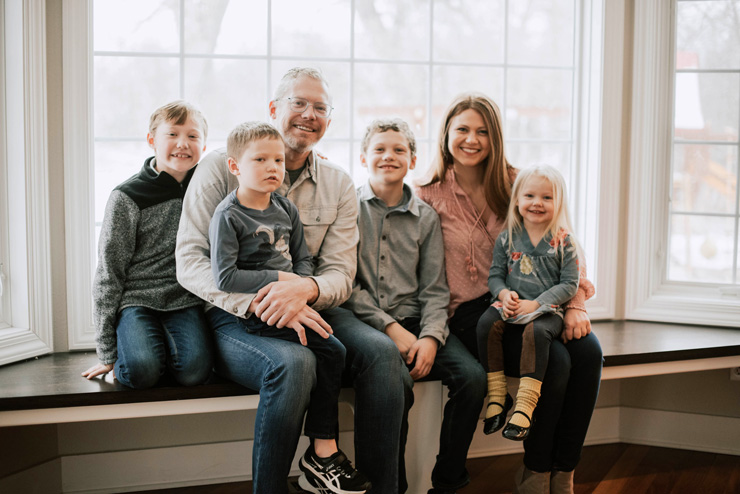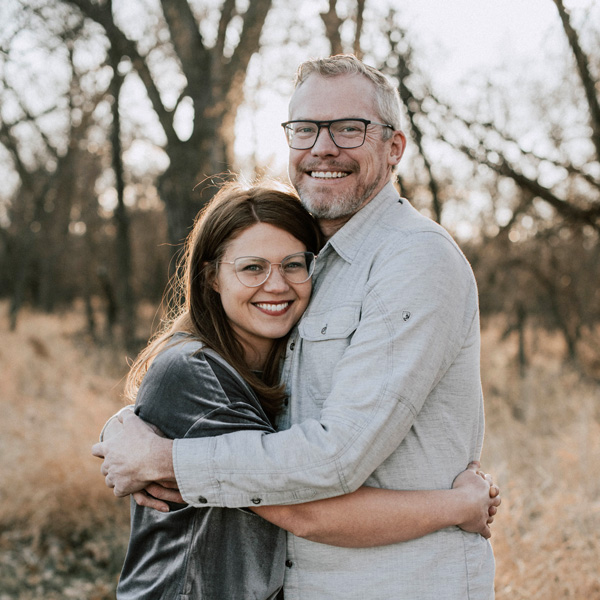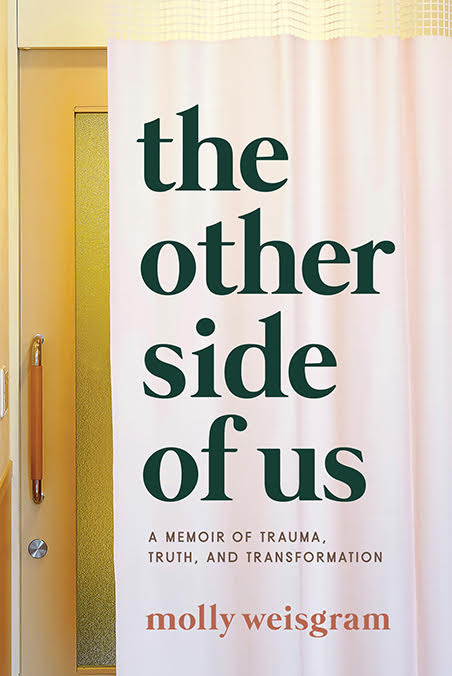When her husband contracts a devastating health condition, one woman discovers her latent strengths and true self
—
Sometimes the most unexpected things happen. Like witnessing snow fall on a seemingly cloudless day. Most of the time we wonder aloud before making minor adjustments to accommodate. “Look, it’s snowing!” we exclaim with our noses to the window before going back to what we were doing. These unexpected things don’t often change our lives drastically.
Except when they do.
Like the day in 2019 when my otherwise healthy husband was diagnosed with Guillain-Barre Syndrome. One day we were a busy young family, juggling our careers, school, extracurricular activities, and in the process of getting adjusted to the recent addition of our fourth child. The next day we were a family torn apart as the disease wreaked havoc on my husband’s peripheral nervous system. Guillain-Barre Syndrome is a rare autoimmune disorder that shuts down the body from limb to core in severe cases. He became a quadriplegic on a ventilator practically overnight.
Many of us structure our lives around doing our best to avoid or (at least) ease into these major changes. We schedule preventative healthcare checks, wear our seatbelts, and save money for retirement. We strive for safety and stability because the alternative has the potential of causing the people, places, and things in our lives to slide away and disappear, making our deep rooted connections to them—the ones we rely on—rip apart painfully. This kind of separation creates a dizzying loneliness. A naked vulnerability.
It’s hard to think about who we are without the other.
My husband’s case of Guillain-Barre Syndrome was severe, so I assumed the role of caregiver and advocate for nearly a year. I worked to salvage my husband’s life both literally and metaphorically while also shepherding my children through their coping process. I balanced my own grief in my downtime, often shifting it to the recessed corners of my mind for the sake of convenience. I thanked God for my family, friends, and community who demonstrated incredible kindness in our time of difficulty.
When my husband was first whisked to the ICU, I cried and said, “I don’t know who I am without him.” Out of necessity, I went on to learn just that. I discovered that I was stronger than I previously thought.
The situation required me to lead my family in a new way. While my husband was forced to sacrifice all control after losing the ability to move, breathe, communicate, eat, go to the bathroom, blink his own eyes, or even hold onto the knowing that he would regain these abilities, I was forced to become his voice, represent his humanity, and advocate for his care. I had to hold space for our children so they could accept within themselves the torrent of feelings that rushed through their minds and hearts. I had to consider long-term consequences of the illness and be prepared to pivot into our future.
I cleared my throat when I was required to speak on behalf of my husband. I found my voice when I was required to become the narrator of our lives. In this personal tragedy, I had to set the narrative because the unexpected begs questions from everyone. What happened? Why did this happen? What is going to happen next? If I didn’t set the narrative, the void would naturally be filled by others. Then I’d have to try someone else’s understanding of our lives on for size. What if it didn’t fit?

I didn’t have answers to most questions, but I knew I had to communicate. Our children looked to me, and our family, friends, co-workers, clients, and community did the same. But it wasn’t natural for me to step into this role. I was a private person. I typically either internalized my experiences or shared with only a select few. For context, I’m the person who didn’t announce her pregnancies because I was uncomfortable with the fuss. The pregnancies announced themselves.
When I finally found the way to communicate, I shared our situation publicly on a CaringBridge journal, a website specifically designed to relay health journeys. Journaling helped me deal privately. Sharing my words publicly allowed me to be vulnerable while maintaining control at the same time. It allowed me to set the narrative with clear, measured, and honest words. To frame our situation in power, hope, and light.
Initially, I wrote to update those who cared about my husband’s progress, but it wasn’t long until I realized that I was doing it for another reason. To explore our wholeness.
My husband regained the ability to function independently after nearly a year of in-patient therapy. It was like watching a slow motion miracle unfold. He shed his ventilator, catheter, gastrointestinal tube, wheelchair, walker, cane, and leg braces until he eventually walked back home, ready to take on the second half of his life.
I continued writing upon his return. I wrote as a catharsis, a way to sort out the tangle of emotions caused by the whirlwind of trauma. I wrote to capture our harrowing life experience so our children could someday examine it with adult eyes, too. I wrote as a way to share perspective and bring my family back together.
My writing evolved into a book entitled The Other Side of Us: A Memoir of Trauma, Truth, and Transformation. It pulls back the curtain and catalogs our transition from the Before to the After of our lives.
Only two years after my husband’s diagnosis, I look back and wonder. Our unexpected life detour brought us pain and loss…as you might expect. But it also brought new growth. It revealed new dimensions of ourselves. It seemed to chisel us into who we really are…this was unexpected. What if the universe intends to shape us into our true form through our experiences, even the painful ones?
What if we trust that everything is for us in some mysterious way?
If I had a choice, The Other Side of Us is not the book I would have written. The disease genre is not my preferred reading material. In fact, because of the emotional hangover I experience as a result, I steer away from it at all costs. I prefer books that deal in psychology and spirituality, information that inspires deep thought and growth and perspective. But, while I did not choose my book exactly, I was meant to write it. And, turns out, it deals in psychology and spirituality, as well as information that inspires deep thought and growth and perspective. Maybe everything is connected after all.
You may also enjoy reading Weeds of Opportunity: Finding Solace and Soul Connection in the Dirt of Life, by Kristen Noel


